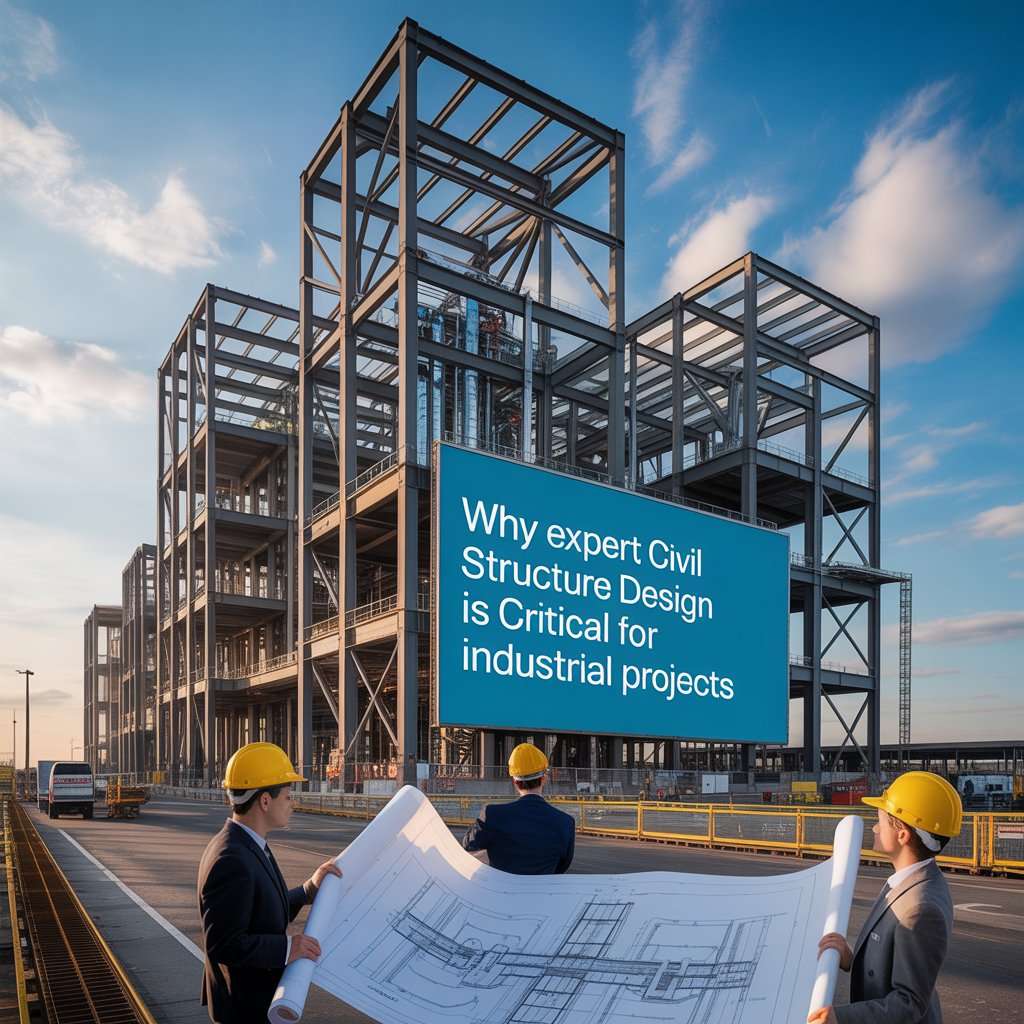Are you planning a pharmaceutical facility but worried about meeting strict regulatory standards or ensuring structural safety? Expert civil structure design is the backbone of successful industrial projects, especially in pharmaceutical plants where precision and compliance are non-negotiable.
In this blog post, you’ll discover why pharmaceutical civil design services and structural design for pharma plants are essential for safety, efficiency, and compliance. Learn practical tips, real-world applications, and how partnering with a trusted pharmaceutical consulting firm can make all the difference.
What Is Civil Structure Design for Pharmaceutical Facilities?
Understanding the Basics
Civil structure design involves creating robust, safe, and functional frameworks for buildings, ensuring they can withstand environmental and operational demands. In pharmaceutical facilities, this means designing structures that support heavy equipment, cleanroom environments, and strict regulatory requirements like Good Manufacturing Practices (GMP).
- Key Focus Areas:
- Foundation design for cleanroom structures: Ensures stability for sensitive manufacturing areas.
- Load-bearing design in pharma units: Supports heavy machinery and operational loads.
- GMP-compliant civil design: Meets stringent industry standards for safety and cleanliness.
Why It Matters
Poor structural design can lead to costly delays, safety risks, or non-compliance with regulations. Expert civil engineering for pharmaceutical facilities ensures your project is built to last while meeting all necessary guidelines.
The Role of Structural Design in Pharma Plants
Ensuring Safety and Stability
Pharmaceutical plants house complex systems like HVAC units, heavy machinery, and sterile environments. A well-executed structural layout for pharmaceutical buildings ensures these components operate seamlessly.
- Tip: Work with engineers experienced in RCC structure design for pharma plants to create durable, load-bearing structures.
- Example: A poorly designed foundation could cause vibrations, disrupting sensitive cleanroom operations. Proper foundation design for cleanroom structures prevents this.
Meeting GMP Standards with Civil Design
What Is GMP-Compliant Civil Design?
Good Manufacturing Practices (GMP) require pharmaceutical facilities to maintain strict cleanliness, safety, and operational standards. GMP-compliant civil design ensures that walls, floors, and ceilings are built to prevent contamination and facilitate easy cleaning.
- Actionable Steps:
- Use smooth, non-porous materials for cleanroom walls and floors.
- Design layouts with minimal joints to reduce contamination risks.
- Incorporate proper drainage systems to maintain hygiene.
Why Compliance Is Non-Negotiable
Non-compliance can lead to failed inspections, product recalls, or even facility shutdowns. Partnering with experts in infrastructure design for pharma manufacturing units ensures your facility meets all regulatory requirements.
Benefits of Expert Pharmaceutical Civil Design Services
Long-Term Cost Savings
Investing in industrial civil design for pharma projects upfront reduces the need for costly repairs or retrofitting later. A well-designed structure minimizes maintenance and ensures operational efficiency.
- Benefits:
- Enhanced durability with RCC structure design for pharma plants.
- Reduced downtime due to stable load-bearing design in pharma units.
- Compliance with regulations, avoiding fines or delays.
Improved Operational Efficiency
A thoughtful structural layout for pharmaceutical buildings optimizes workflows, ensuring smooth movement of materials and personnel. For example, strategic placement of cleanrooms can reduce contamination risks and improve production timelines.
How to Choose a Trusted Pharmaceutical Consulting Firm
What to Look For
Not all consulting firms are created equal. When selecting a partner for pharmaceutical civil design services, prioritize experience, expertise, and a proven track record.
- Checklist:
- Experience in civil engineering for pharmaceutical facilities.
- Knowledge of GMP-compliant civil design standards.
- Ability to provide customized infrastructure design for pharma manufacturing units.
FAQ: Common Questions About Pharmaceutical Civil Design
1.What is the role of civil engineering in pharmaceutical facilities?
A : Civil engineering ensures the structural integrity of pharma plants, supporting heavy equipment and maintaining cleanroom standards through foundation design for cleanroom structures and load-bearing design in pharma units.
2.How does GMP-compliant civil design impact project success?
A : GMP-compliant civil design ensures facilities meet regulatory standards, reducing the risk of contamination, safety issues, or regulatory penalties.
3.Why should I hire a trusted pharmaceutical consulting firm?
A : A trusted pharmaceutical consulting firm brings specialized expertise in structural design for pharma plants, ensuring compliance, safety, and efficiency.
Conclusion
Expert pharmaceutical civil design services are critical for building safe, compliant, and efficient industrial facilities. From foundation design for cleanroom structures to GMP-compliant civil design, every detail matters in ensuring your project’s success. By partnering with a pharma consulting firm, you can avoid costly mistakes and create a facility that stands the test of time.
Ready to start your next pharmaceutical project? Contact us today to learn how our industrial civil design for pharma projects can help you succeed. Share your thoughts or questions in the comments below—we’d love to hear from you!



